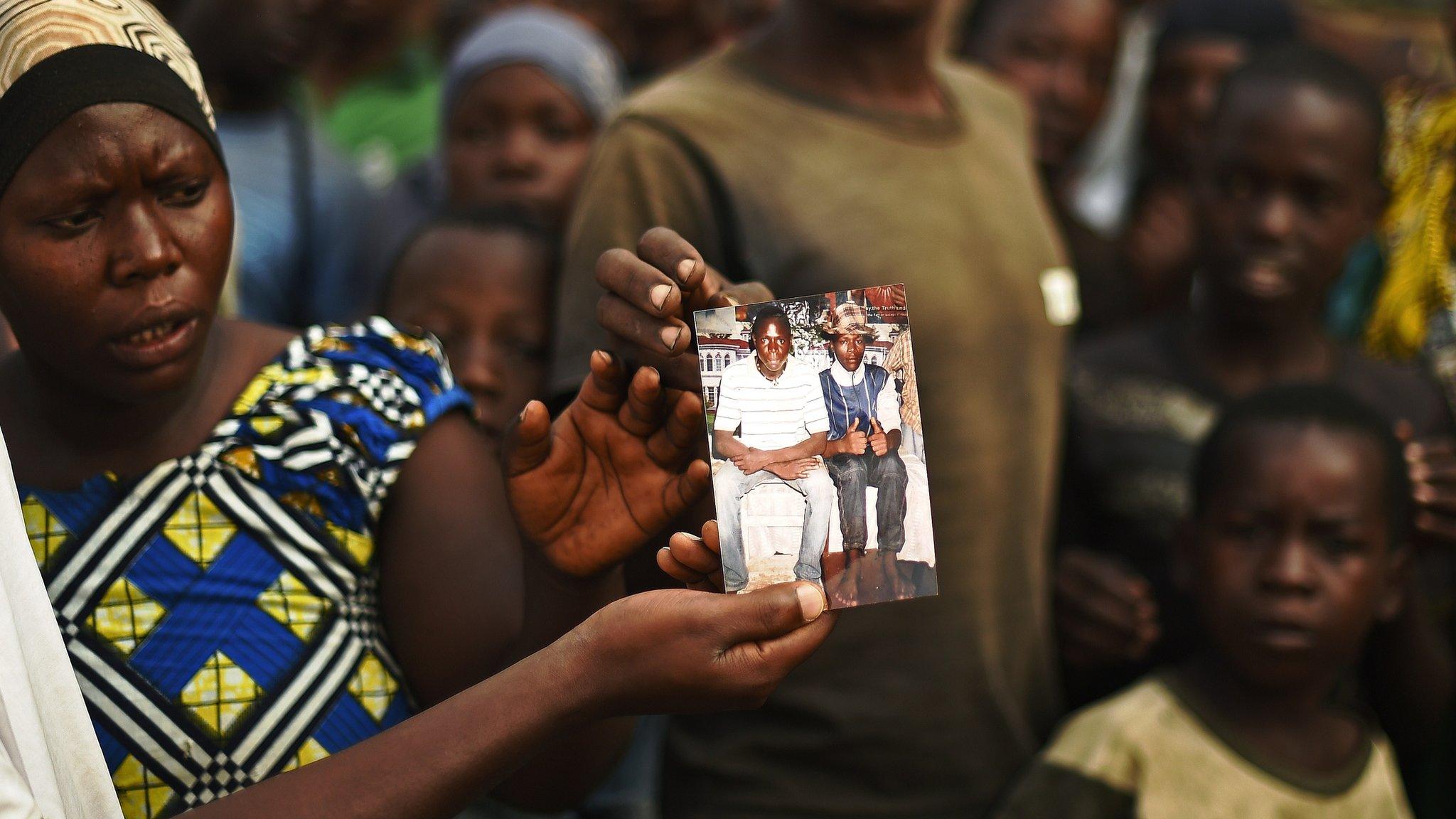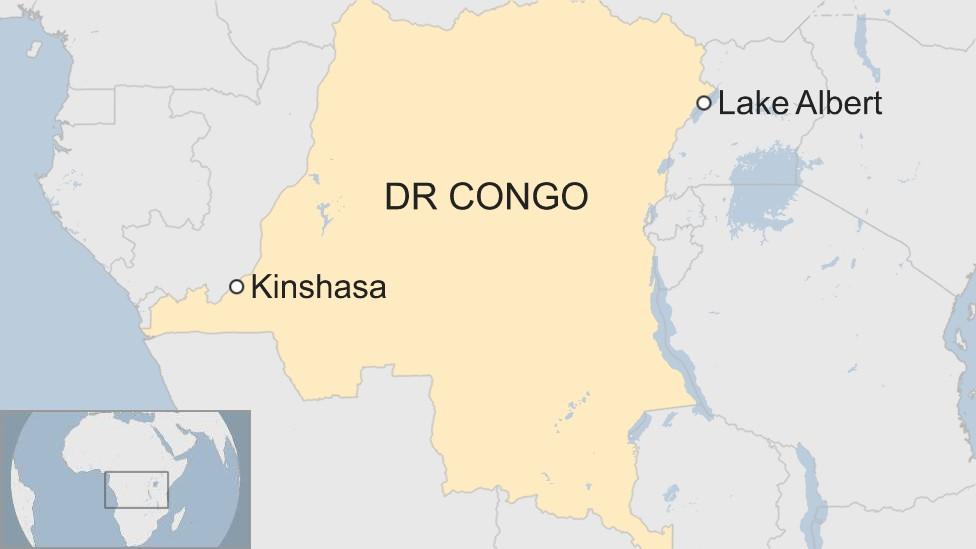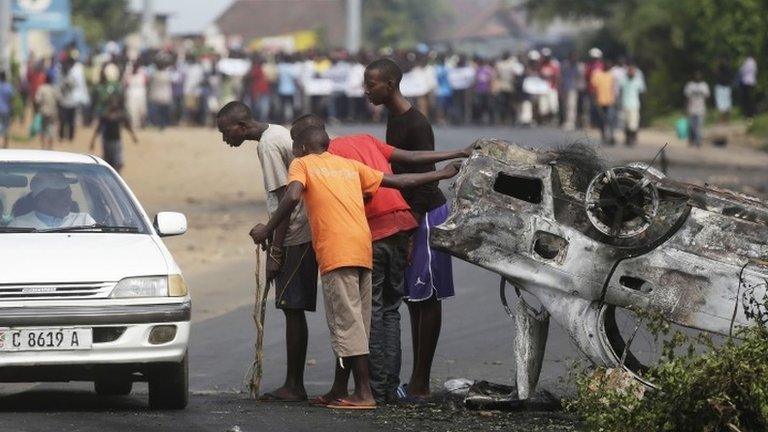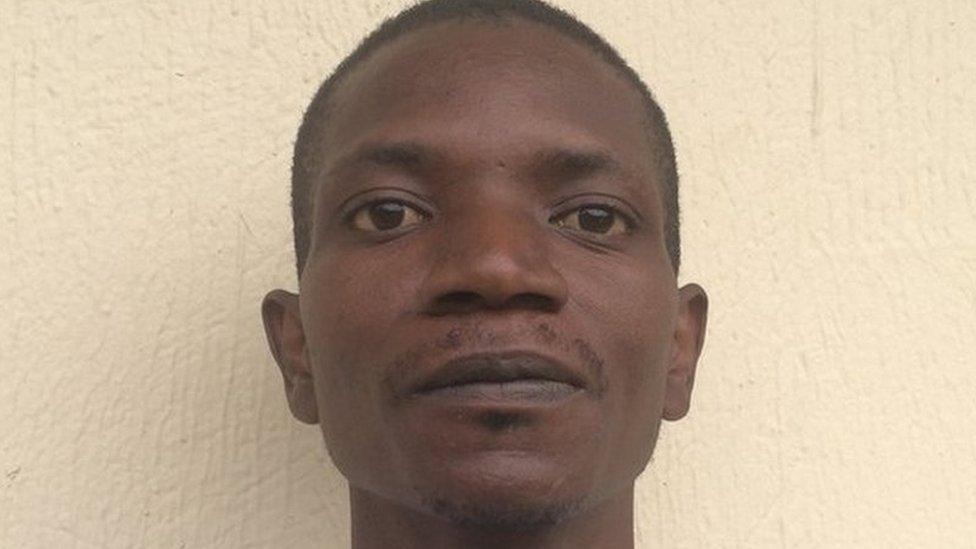DR Congo security forces shoot dead Burundi migrants
- Published
At least 37 Burundian migrants were killed and another 117 were injured
Security forces in the Democratic Republic of Congo have shot dead 37 Burundian migrants who were protesting after four of their countrymen were expelled, the UN says.
Its peacekeeping mission Monusco said another 117 were injured during the incident in the east of the country.
Government sources said protesters overran a prison where the Burundians were being held for deportation.
The UN has called for an investigation into exactly what happened.
Monusco's Florence Marchal said her team was "shocked" by the killings.
The Burundian protesters, she said, "were not happy because four of them have been expelled from Congo. A [Congolese soldier] was killed in the clash, and it led to the escalation of violence.
"Congolese defence and security forces then allegedly responded with indiscriminate firing on the protesters."
The Congolese interior ministry earlier said troops had fired in the air but were overwhelmed by protesters throwing stones.
In the wake of the killings, Burundi's Foreign Minister Alain Aimé Nyamitwe took to Twitter demanding answers.
Allow X content?
This article contains content provided by X. We ask for your permission before anything is loaded, as they may be using cookies and other technologies. You may want to read X’s cookie policy, external and privacy policy, external before accepting. To view this content choose ‘accept and continue’.
Allow X content?
This article contains content provided by X. We ask for your permission before anything is loaded, as they may be using cookies and other technologies. You may want to read X’s cookie policy, external and privacy policy, external before accepting. To view this content choose ‘accept and continue’.
Allow X content?
This article contains content provided by X. We ask for your permission before anything is loaded, as they may be using cookies and other technologies. You may want to read X’s cookie policy, external and privacy policy, external before accepting. To view this content choose ‘accept and continue’.
More than 400,000 people have fled Burundi since 2015, when President Pierre Nkurunziza announced he would seek a third term, sparking widespread violence.
Some 40,000 are living in the DRC, the UN Refugee Agency said.
A note on terminology: The BBC uses the term migrant to refer to all people on the move who have yet to complete the legal process of claiming asylum. This group includes people fleeing war-torn countries such as Syria, who are likely to be granted refugee status, as well as people who are seeking jobs and better lives, who governments are likely to rule are economic migrants.
- Published3 November 2015

- Published19 August 2017

- Published2 May 2015

- Published3 August 2017
